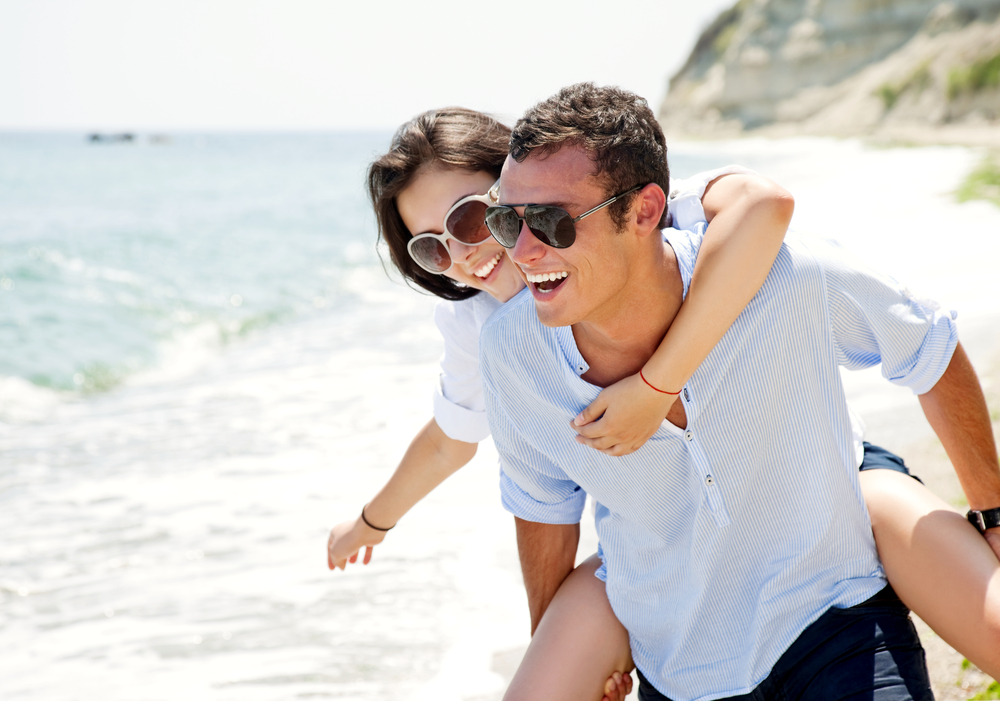
Research has shown that spending long hours in the sun without protecting your eyes can considerably increase your chances of developing certain eye diseases. Nevertheless, many of us fail to remember that protection for our eyes is just as important as protection for our skin. July is UV awareness month – the perfect time for us to explain a little about just why it is important to protect our eyes from the harmful effects of the sun.
What is UV light and what damage can it do to my eyes?
UV light is a type of radiation that is emitted by the sun, as well as a number of other mand-made devices including tanning beds and welding tools. There are actually several varieties of UV light, known as UVA, UVB, and UVC. UVC can’t penetrate the earth’s atmosphere, but UVB and UVA can reach the ground. Both can cause changes to the cells of the skin and the eyes. In fact, the eyes are the organ most affected by UV exposure after the skin. Some of the many eye conditions that can develop as a result of significant or accumulative UV exposure include:
Corneal sunburn
Pinguecula and Pterygium (growths that develop on the white of the eye)
Cancer of the skin around the eyes
Cataracts
Macular degeneration
Each of these conditions has the potential to be painful and/or debilitating in some way. Cataracts and macular degeneration are also leading causes of vision loss.
Factors that affect UV exposure
There are a number of different factors that can affect how much UV light reaches us on the ground. These include:
Distance from the equator: UV exposure is higher the nearer you are to the equator.
The season: UV rays are stronger during the spring and summer, although this is less of a consideration if you live near the equator.
Time of day: UV rays are always strongest in the middle part of the day. We don’t just mean lunchtime, but the entire period between around 10 am and 4 pm.
Cloud cover: as much as 85% of UV light can penetrate cloud cover, meaning that you should even wear eye protection on overcast days.
Altitude: the higher you are, the more UV light you will be exposed to. This tends to put people who hike, ski, and snowboard at increased risk of UV damage.
Reflections: UV light can reflect off of surfaces such as snow, sand, and water, and when this happens, the strength of the radiation can increase, putting you at a greater likelihood of UV damage.
Fortunately, there are steps that you can take to protect your eyes from the harmful effects of UV damage.
Check the UV-blocking capability of your sunglasses
Many people think that the darker the lenses of their sunglasses, the more protection they will be given against harmful UV light. Unfortunately, this isn’t necessarily true. Dark tints can certainly make your vision more comfortable, reduce glare and eye strain. However, the color of your lenses doesn’t actually correlate at all with their effectiveness against UV. The ideal sunglasses should block 99-100% of UVA and UVB light and the only way to know if this is the case is to choose a variety that has a sticker or label stating this. If you have a pair of sunglasses that you’d like to keep but you aren’t sure how effective they are, your eye doctor should be able to test them for you and provide this information.
Think about the style of your sunglasses
You’ll definitely want to choose a style of sunglasses that suits your face shape, but did you know that some frame designs are actually better at protecting our eyes from UV than others? Over-sized lensed, close-fitting frames and wraparound styles can help to prevent UV from creeping in around the edges of the lenses, adding an additional layer of UV-light blocking capability.
Minimize your risk factors
As we know, there are certain things that can put you at greater risk of UV damage – for example, being at high altitudes, living near the equator, or failing to wear sunglasses on cloudy days. By ensuring that you wear adequate eye protection at all times, especially if you know you are going to be in a high-risk situation, you can help protect the long-term health of your eyes and your vision.
Need more advice about UV protection? Give our dedicated eyecare team a call today.







